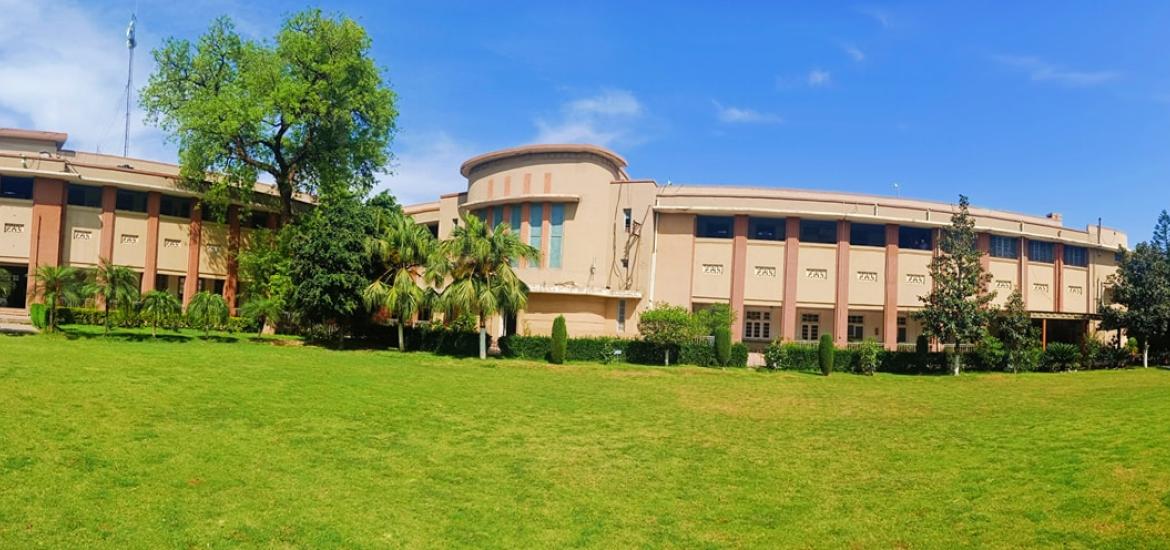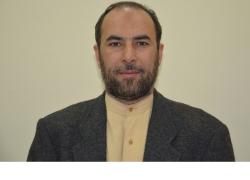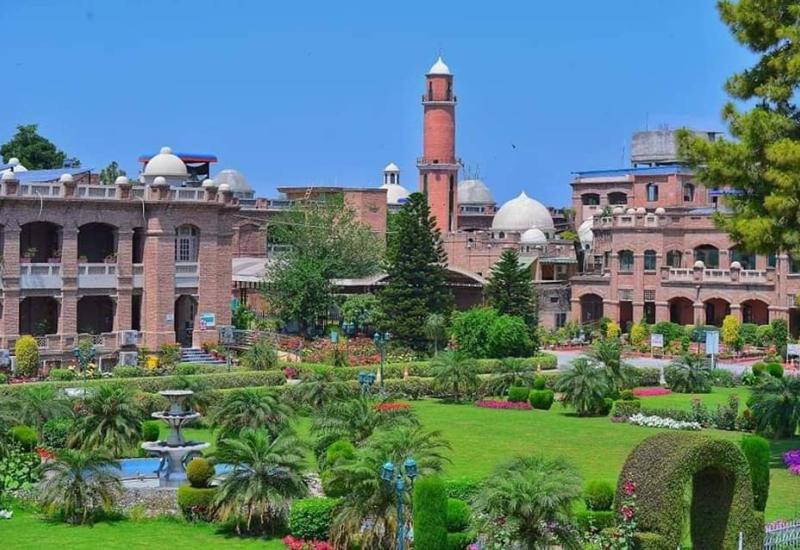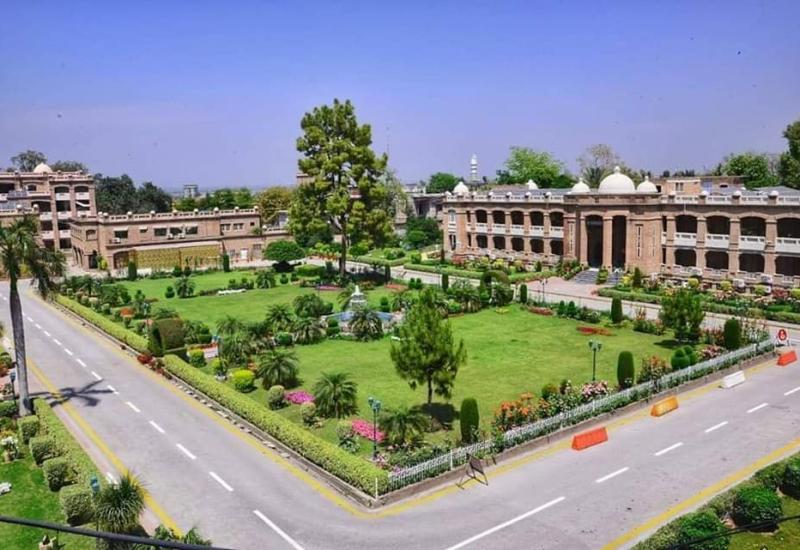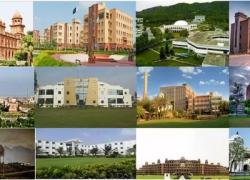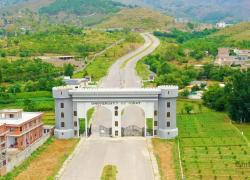Some of the major challenges the new Vice-Chancellors shall confront in the Universities in Pakistan
As the appointment of Vice-Chancellors of eight public sector universities in Khyber Pakhtunkhwa is in the final stage, the Higher Education, Archives and Libraries Department has formally moved a summary, based on the names proposed by the Academic and Search Committee following the panel interviews held in Islamabad last week, the issuance of a proper notification to this effect is now just a matter of time.
The Khyber Pakhtunkhwa cabinet accorded approval for the appointment of these regular vice-chancellors yesterday dated 27th November and the higher education department will notify the same after approval by the Governor, who is also the Chancellor of the public sector universities in the province.
On assuming the office, the newly appointed Vice-Chancellors shall have to negotiate with numerous challenges. Setting the strategic direction of the universities, preserving universities’ autonomy, ensuring transparency, managing the critical mass of human resources, launching new academic programs in the cutting-edge technologies, managing the online arrangements of teaching, conducting ongoing and upcoming examinations, saving the precious time/academic year of the students in the wake of the second wave of Corona pandemic, financial sustainability, legal and judicial activism and increasing unrest among administrative staff are some of the major challenges the newly appointed academic leaders shall have to face. Nevertheless, some of these issues need serious and urgent attention.
This blog post is aimed at underlining some of the pressing challenges confronted by the public sector in Pakistan so that the newly appointed academic heads pay special attention to counter it. These mainly embrace: i). prevailing administrative vacuum, ii). Looming financial crunch, iii) Digitalization and iv). Politically motivated meddling in the universities’ affairs.
To combat these challenges, the new vice-chancellors need to have strong leadership, negotiation, interpersonal, digital and decision-making skills. These are discussed here in detail.
1. Prevailing administrative vacuum in the Universities in Pakistan
On the management side, there are several senior-level managerial positions such as Registrar, Treasurer, Controller of Examinations, Director Academics & Admission, Director, Office of Research, Innovation & Commercialization (ORIC), Director Quality Enhancement Cells (QEC), Director Administration and Director Planning in the public sector universities in Pakistan. These positions provide necessary administrative support to the academic leadership, statutory bodies and top brass for the effective operational management of the universities.
However, it has been revealed a few days back by the print media that at least twenty public sector universities in Khyber Pakhtunkhwa are running without a permanent Registrar whereas, twenty-three universities have no regular Controller of Examinations. Similarly, the position of Treasurer is also vacant in many universities in the province. These positions are mostly occupied by the teaching faculty, in glaring violation of Section-17A of the Khyber Pakhtunkhwa Universities’ Act, which states that:
______________________________________
“All administrative positions in universities shall be filled by the Administrative Officers of the University on regular basis and in no case teachers and officials other than the Administrative Officers shall be posted on these positions. In case suitable candidate is not available from amongst the Administrative Officers, the University shall ensure immediate appointment on such posts in the prescribed manner”.
___________________________________
Nevertheless, the people at the helm of universities’ affairs are in the habit of running administrative affairs on adhoc basis as it best caters to their needs and meets their particular requirement without observing the said provision of the Act.
For instance, in one of the public sector university, a Lecturer of the Sociology Department has been posted as Treasurer in utter violation of the said provision of the Act. In another public sector university, the charge of twenty-two administrative positions have been given to the members of teaching faculty just to count a few of the universities.
This not only blocks the career progression of administrative officers but also promotes unfairness, injustice and favoritisms in the universities. This action engenders trust deficit between the teaching faculty and administrative staff but also has the potential to lead to further mismanagement in the universities as persons with no relevant experience, qualification, and skills are posted against some of the important and sensitive positions.
As this practice has created grievous fermentation among the administrative officers in the universities, the new Vice-Chancellors shall have to address their concerns to this effect and have to follow the provision of Section-17A of the Khyber Pakhtunkhwa Universities’ Act in true letter and spirit.
2. Looming financial crunch in the Universities in Pakistan
The deplorable financial health of universities is another major challenge for new academic leaders. Indeed, public funding is the premier source of financial support for state-run universities. Without generous government funding, it would not be possible to run academic as well as the administrative business of the universities. In the backdrop of serious budgetary constraints, the public sector universities have other matters of a serious concern than attaining academic excellence.
In such a scenario, one of the widely used remedial measures at the disposable of these Vice-Chancellors shall be the enhancement of admission as well as examination fee and curtailment of perks and privileges of the employees. These extensively despicable and highly unpopular measures shall yield undue discontent in the students as well as employees and no Vice-Chancellor would be able to afford it.
For this, the Vice-Chancellors shall have to explore other sources of revenue generation such as university-industry linkages and consultancies.
Besides, the Vice-Chancellors shall have to persuade the provincial government to shoulder the responsibility to help the universities to overcome the prevalent financial crisis, otherwise, the situation will further deteriorate to the extent in the coming days that the universities shall not be able to pay even salaries to its employees let alone realizing its strategic vision and playing its due role of national economic development in the knowledge-based economy.
The Vice-Chancellor, being Principal Accounting Officer shall have to ensure that the core principles of accountability, fair play and transparency are taken into consideration at all stages of financial management while framing and implementing key decisions supported by a team of upright professionals. Getting full value for money with a robust internal control system and spending money for the purpose and in the manner prescribed by the university’s financial rules to secure a financial base sufficient to allow the delivery of the University’s vision, mission, aims and objectives.
3. Digitalization of the Universities in Pakistan
Since most of the public sector universities have an enormously low level of automation, digitalization seems to be the sole solution to the many issues confronted by the universities. Serious efforts were not undertaken in the past to digitalize internal system, sub-systems and processes. The PUC, put up on file, discuss, DFA, K.P and through proper channel are the norms of the official business in the universities.
In such a scenario many universities have launched online classes in the wake of corona pandemic, nevertheless, insufficient digital infrastructure, connectivity issues and frequent power outage were found to be some of the common bottlenecks. This needs urgent attention if these institutions of higher learning want to survive in the contemporary academic world. The new Vice-Chancellors shall have to give serious consideration to this widely neglected aspect of the higher education institutions in the country.
The Corona pandemic provided a unique opportunity for the universities to adopt a virtual office environment (e-office) and make it possible to perform official business from home. With the growing evidence that we must live with COVID-19 for a foreseeable future, the universities in Pakistan have no other option but to digitalize its systems, functions and processes.
This demands the urgent attention of the new Vice Chancellors. They shall have to give serious thought to this out-rightly neglected aspect of the higher education sector. Collaboration among the academic institutes shall help save time, energy and resources. It is also proposed that the universities should move towards outsourcing, integrated solutions and allow others to learn from their experiences.
4. Politically motivated meddling in the Universities’ affairs in Pakistan
Another important challenge, the new Vice-Chancellors shall have to tackle is the burgeoning political intervention in the affairs of the universities. Political interference in universities is not new in our setting. In the backdrop of spudding unemployment political leaders always, exert unsurmountable pressure on the Vice Chancellors to ensure their voters and supporters are appointed in the public sector universities by hook or by crook. Another fertile area for the politically motivated intrusion is the admission in various academic programs of the universities.
The system of Examinations is the most vulnerable to such nuisance in the universities. Unwarranted delay in the examinations and granting undue favour in the viva-voce are other susceptible areas. It has been reported, umpteen times, on the social as well as print media that academics were grilled on numerous occasions for resisting such moves. In fact, the new Vice-Chancellors shall be required to have strong muscles and show courage to weather such interventionism.
Conclusion
The public sector universities in Pakistan are grappling with a range of unprecedented challenges. Many of these are issues over which the top leadership have little or no control. Of course, the new Vice Chancellors need to ensure that these do not overwhelm them, by focusing on what they can control and choosing carefully where they can focus their energy. This means regularly revisiting their mission to ensure that they do all that they can do to deliver excellence in education and research for the benefit of individuals and society. In doing so they need to be daring, imaginative, and impatient for change and to ensure that the university meets the needs of the time.
In the face of numerous bottlenecks, constraints and challenges, the new Vice-Chancellors need to be mentally and physically prepared to drive necessary reforms in the higher education sector in the province.

